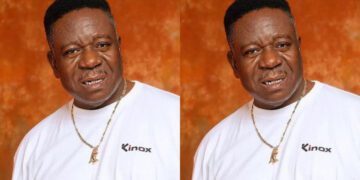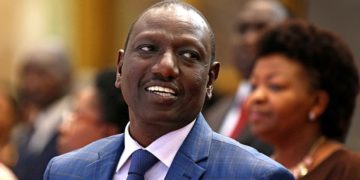[ad_1]
Rob Houwing, Sport24 chief writer
It was a vibe they are desperately trying to restore, perhaps a little against the present odds, at Kings Park.
Register your interest for the British & Irish Lions tickets in South Africa 2021
The Sharks of the period in the afterglow of South Africa’s maiden World Cup success in 1995 lured large and loyal crowds to the venue, with the local public quickly developing a taste for the then-Super 12 – which marked the beginning in the southern hemisphere of the modern, professional era in 1996.
For all of those first three years of the tournament the Durban-based side were highly competitive in it, reaching one final and two semis, even if trophy-hoist would remain elusive, a hallmark that has lingered to this day.
And why wouldn’t they have been?
That mini-era both began and ended with Ian McIntosh and Gary Teichmann in major string-pulling roles as head coach and captain respectively, and the pair found willing disciples in the camp.
A much-loved, old-school Zimbabwe-born figure whose training-field bark was a lot worse than his affable behind the scenes “bite”, McIntosh had already sealed his legend in Durban many years before, guiding Natal to their maiden Currie Cup title success in their immortal 1990.
Teichmann, meanwhile, who hailed from the same country as McIntosh, was already cutting his teeth very promisingly as a significant successor (from 1996) to Francois Pienaar as Springbok captain … something that would include leading the Boks to a first Tri-Nations title in 1998.
So the Sharks were hardly lacking in intellectual and motivational qualities at the top of the team hierarchy.
In that 1996 season – and in most player cases for the next couple of forceful, onward years in Super Rugby – there were other appealing personalities galore on the Sharks’ books, like their renowned “Rolls-Royce” at fullback in Andre Joubert, the single-minded James Small and surfer-lookalike Cabous van der Westhuizen on the wings, Dick Muir as an inventive presence in midfield and Henry “Lem” Honiball, he of the famously high pain threshold and rugged willingness to take the ball shallow for a No 10.
Teichmann packed down in the scrum, meanwhile, behind a stalwart lock firm in the shape of Mark Andrews and Steve Atherton, Ollie le Roux was the colourfully opinionated, burger-loving “tank” as a ball-carrier and clean-outs piledriver at loose-head, and the front row completed by John Allan (both of Scotland the Springboks) and Adrian Garvey, a mobile and shrewd scientist rather than behemoth of the tighthead berth.
The ’96 Sharks ended fourth overall after ordinary season, which meant a daunting trip to Ballymore to tackle the Reds in the last four – and not long after ominously losing to the Queenslanders 21-20 in Durban before the round-robin was wrapped up.
Notably not the favourites, they instead stormed to a handsome 43-25 victory, featuring a hat-trick of tries to Van der Westhuizen (who always did enjoy warmer, sultry climes).
The final in Auckland was a bridge too far on the tour after those exertions, however, as an All Black-oozing Blues outfit dismantled them a week later 45-21 in the showpiece, ensuring glory for such illustrious rugby men as captain Zinzan Brooke, Jonah Lomu, Carlos Spencer, Michael Jones, Sean Fitzpatrick and Olo Brown.
A year later, the fighting Sharks finished in fourth spot once more, enough to ensure knockout progression, although this time there was no cigar from a semi-final on foreign turf: they came a 55-36 cropper to the very same Blues, who then shifted onward to retain the crown by seeing off the Brumbies in the final.
Still with the nucleus of their earlier personnel but with some additions like Bok hooker Chris Rossouw and emerging flier from Swellendam High School and later Boland, Stefan Terblanche, perhaps the squad of 1998 was the best-geared of the three for a major assault on the title.
I remember attending (while in Durban to handle a SA Sports Illustrated interview and cover shoot involving one of their players, a quite common phenomenon) a tantalising, pivotal home match, in front of a near full-house, in the final round against the gradually emerging force who were Canterbury Crusaders.
Win it, and the Sharks would have hosted them in a semi just a week beyond; crash and the Crusaders would have been gleefully travelling home – the sides quite possibly on same flights – to instead have staging rights against Teichmann’s troops.
You don’t get greatly higher stakes than that.
It was a three-tries-all Kings Park humdinger, but with “Storming” Norm Berryman (sadly to die from a heart attack in 2015) destructive on the wing for the visitors, the Crusaders earned a platinum-value 32-20 result in their favour.
Hamstrung by the fatiguing trek across the Indian Ocean to play the same opponents in the semi, the Sharks made a stubborn fist of it, scoring five tries to four but still being agonisingly pipped 36-32: ironically the Durban-born Andrew Mehrtens made a major difference on the day with the precision of his place-kicking.
That was the end of the Sharks’ plucky period of getting within sniffing distance of the title so routinely … by 1999 they had wilted to a seventh-placed finish.
*Follow our chief writer on Twitter: @RobHouwing



















